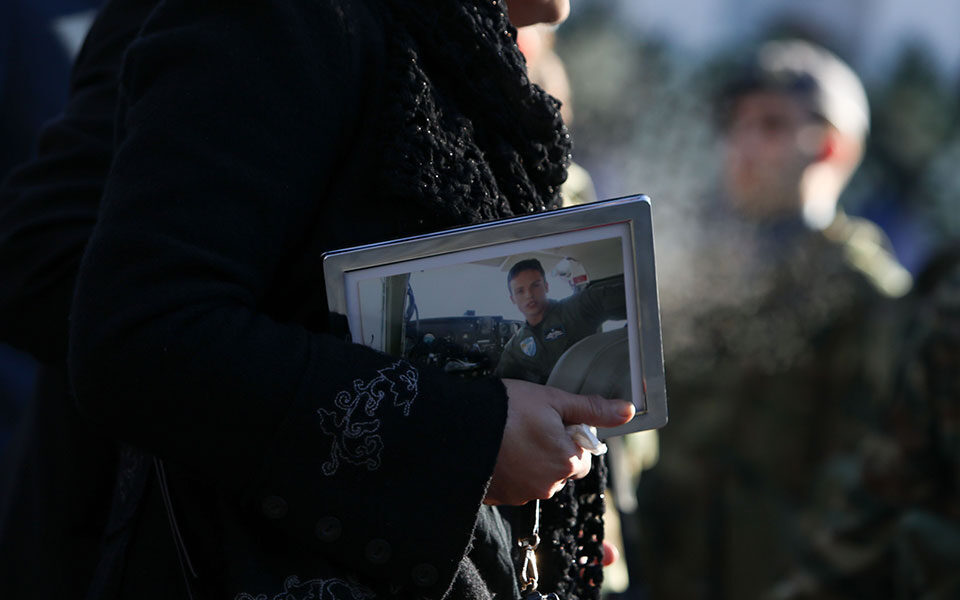From the process of mourning to mental imprint

There has been a heavy atmosphere these past few days. Let us accept it as such, without wanting to dilute it with any forced optimism.
Two mothers are mourning their children – the two air force pilots who died when their fighter jet crashed in the Ionian Sea on Monday. There is no comparable amount of pain, their heartbreaking farewell at the funerals left no one unmoved, from the political leadership to every citizen in the country. The two airmen who died became the “Icari of our hearts.” The mourning, which for the two families will last a lifetime, will be registered for everyone else among the tragic losses, it will eventually take its place among the “memorable events.”
The day before yesterday, we also heard about the untimely death of Filippos Tsimpoglou, the director general of the National Library of Greece (NLG), a man 67 years of age whose gifts and qualifications have been praised by all – his colleagues speak of a dedicated public servant. He completed the titanic task of relocating the NLG from central Athens to the Stavros Niarchos Foundation Cultural Center in Faliro; he tried, together with selected companions, to modernize the operation of the library in order to gain an international reach and play its irreplaceable social role.
The two pilots who died were very young, 29 and 31, but managed to leave behind the example of their own commitment to a goal. Each person has their own intended purpose. The common denominator in all these losses is a boldness, a consistency, a passion and a complete dedication to a cause of the public good.
As death is the only moment that invites us to slow down, to let in divergent, unusual thoughts, to readjust our map of existence (without this meaning that the changes are always tectonic), let’s allow ourselves some space and time. A short pause in hostilities with ourselves and others.
The people who died in the last few days, whether we knew some of them personally or not, showed us, in their very short or incomplete lives, a Greece to which we aspire. One in which personal desire and skills coexist, to jointly contribute to the defense of vital values. For others, these values are called homeland, for others it’s the sky, for others it is heritage, education, knowledge and culture. They do not work in isolation. This is how something local becomes national, universal; that is when death does not evaporate through mourning and emotion, but leaves a collective mental imprint. Symbolic as well as very real.




